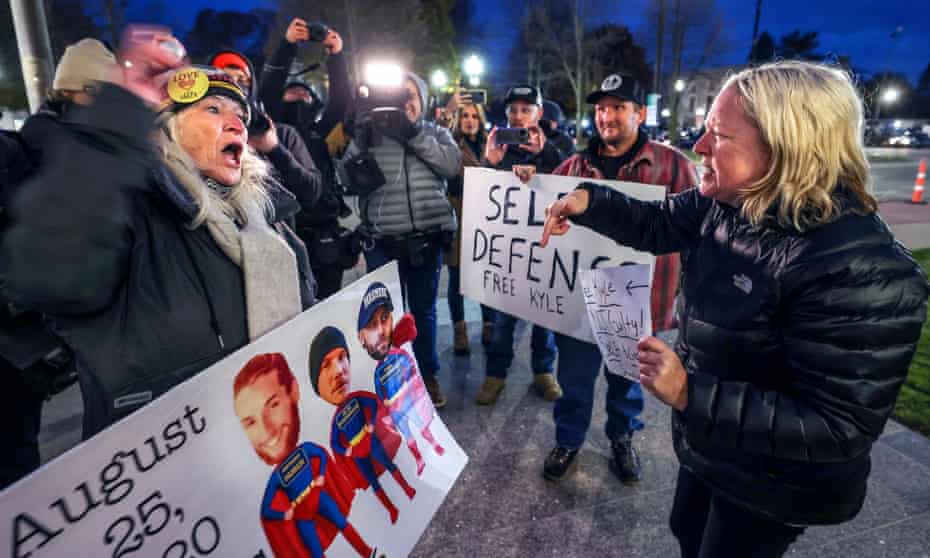Courts decide cases, not causes. On the surface, the acquittal of Kyle Rittenhouse in Kenosha was only about a kid with an assault weapon who killed two men and maimed another. The jury, considering two weeks of testimony, videotapes, lawyers’ arguments, Wisconsin law, and a judge’s instructions, found Rittenhouse not guilty. Not heroic, appropriate, or helpful–just not guilty.
Sometimes, justice prevails in courts, sometimes the law carries the day, sometimes both, and sometimes neither. If the verdict here, dramatically unjust, followed Wisconsin law, something is wrong with the law, and state legislators should be rushing to fix it. This isn’t happening.
In the meantime, people far from Kenosha, most unlikely to be scouring criminal law statutes in Wisconsin, are figuring out just what the verdict means. Most of what’s being learned isn’t good.
Because Rittenhouse had come to Kenosha with a gun intending to defend a car dealership against a Black Lives Matter demonstration (about the police shooting of an unarmed Black man), he became a

hero to many on the right, who contributed more than enough money to secure Rittenhouse a top-flight criminal defense team. After the verdict, they tried to figure out what else they could do for him. A few Republican members of Congress announced that they would compete to hire the young killer.
Noting that Rittenhouse felt menaced by a few of the BLM demonstrators, some armed, his defense claimed self-defense. Because the men he shot shared more or less troubled and unsavory backgrounds, Rittenhouse supporters lionized the killer as a righteous executioner. Rittenhouse, of course, knew nothing about the men he shot, and we should be alarmed that anyone would suggest well-armed teens should stand in for the legal system and dispense street justice. Really.
Even more threatening: armed protesters opposed to BLM protesters will claim vindication not only for bearing, but also using, guns against the threats they fear. Knowing that at least a few of the white BLM protesters in Kenosha were armed themselves, the gun industry can look forward to more demand from across the political spectrum. Faux militia from the right will feel emboldened about standing in for the police. At least some on the left will see their own need for personal protection increase, particularly when out in public. And every demonstration will appear more dangerous to police officers charged with keeping public order and fearing for their own safety.
That something worse will happen is too easy a bet.
Meanwhile, courts chug along slowly processing the grievances that stem from politicized violence. In a courtroom in Brunswick, Georgia, three white men who armed themselves and chased down and killed Ahmaud Arbery, a Black jogger, have claimed self-defense in their trial. The laws in Georgia and Wisconsin differ, as do the facts in each case, and the judges and juries are independent. But activists on the right and left are watching, and will find patterns and take signals from the decisions.


